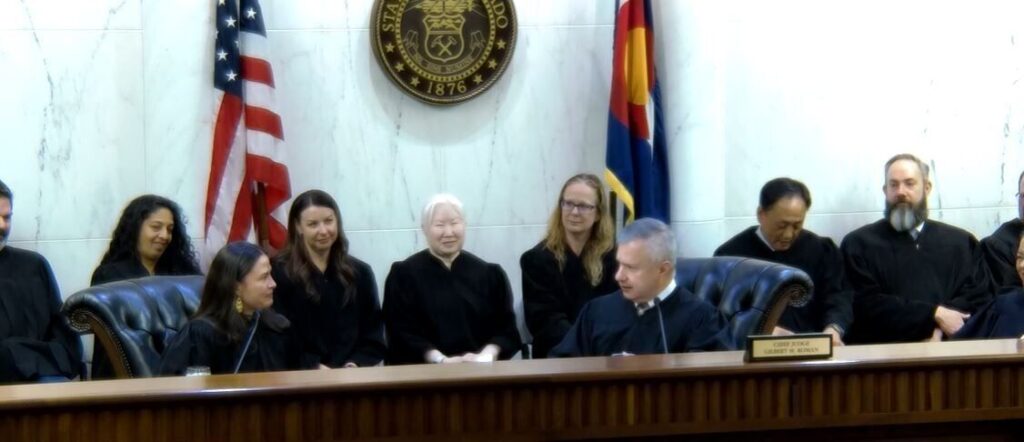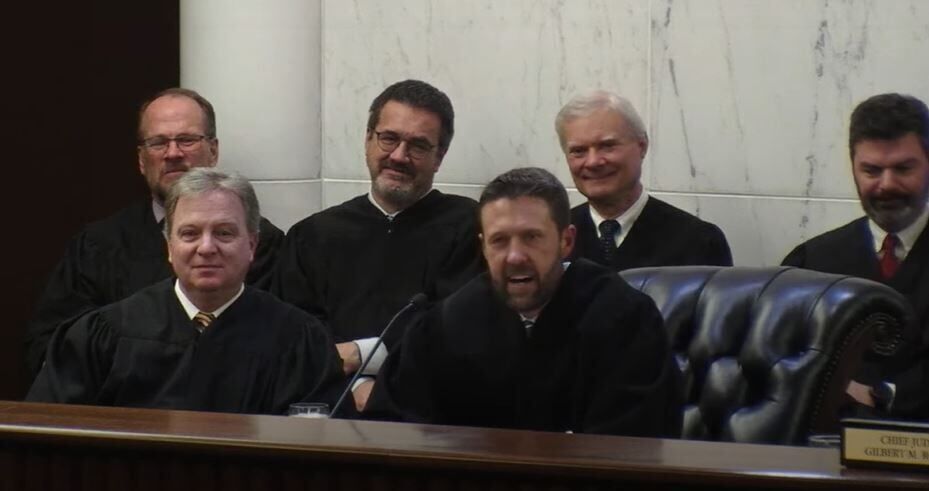Arapahoe County domestic violence conviction reversed for constitutional violation

An Arapahoe County judge improperly limited a defendant’s constitutional right to confront her victim, prompting Colorado’s second-highest court to reverse her conviction last month.
Jurors found Richel Lee Gurule guilty in 2022 of assaulting her romantic partner at the time. Each woman said the other was the aggressor.
Before trial, the judge permitted the defense to cross-examine the alleged victim about her own guilty plea to an unrelated felony around the time of her fight with Gurule. However, Gurule’s lawyers were not allowed to make jurors aware that the victim was also serving probation for the felony at the time of her testimony.
Gurule argued on appeal the limitation violated her constitutional right of confrontation, and a three-judge panel for the Court of Appeals agreed.
“It would not have been unreasonable for defense counsel to attempt to cast doubt on the story that (the victim) told the police by arguing that it may have been influenced by her desire to avoid upsetting that plea agreement by picking up new charges in Colorado,” wrote Judge Matthew D. Grove in the Feb. 22 opinion.
Case: People v. Gurule
Decided: February 22, 2024
Jurisdiction: Arapahoe County
Ruling: 3-0
Judges: Matthew D. Grove (author)
Ted C. Tow III
Lino S. Lipinsky de Orlov
The main issue for jurors in Gurule’s case was whether to believe she was acting in self-defense or if the victim’s version of events was true. Prior to trial, the parties argued over what to do with multiple unflattering details about the victim:
? The victim, five years earlier, gave a false name and birthdate to police in order to avoid arrest on two active warrants
? Shortly after the fight with Gurule, the victim pleaded guilty to a drug felony in Wyoming
? The victim was currently serving probation for the Wyoming offense, but was supervised locally in Arapahoe County
The prosecution admitted the drug felony itself was something jurors could hear about, but it opposed any questioning about the other details. District Court Judge Eric White acknowledged the victim’s prior untruthfulness to police was relevant to her truthfulness in Gurule’s case.
But that felt “an awful lot like saying, ‘Well, she’s lied before,'” White said. “We’re not going back through every white lie, fib, lie, that somebody’s ever told.”
He prohibited any questioning about the lie to police and about the victim’s probationary status.

On appeal, Gurule argued both pieces of information were relevant to the jury. The victim lied once to authorities to avoid arrest, and if she recanted her testimony against Gurule, she could be charged with perjury or false reporting – a probation violation that might lead to prison time.
Given the incentives the victim faced, “she could have admitted to attacking Ms. Gurule first and been charged criminally herself, or she could have made a false report against Ms. Gurule, blaming the fight on her, in order to protect her own freedom and her upcoming felony plea deal,” wrote public defender Julieanne Buchanan.
The prosecution minimized the significance of the victim’s probation, arguing there was nothing to suggest she tried to appease prosecutors in Arapahoe County to avoid further consequences for her Wyoming case.
The appellate panel agreed with Gurule that the victim’s local supervision mattered because it created a possible motive for the victim to testify in the way Colorado prosecutors wanted.
“A defendant must only show that a witness’s testimony was possibly – not certainly – influenced by a promise, an expectation, or even just a hope regarding leniency from the prosecution in exchange for favorable testimony,” wrote Grove.
Because the victim’s testimony and credibility were central to the question of Gurule’s guilt, the panel deemed it a mistake for White to limit the defense’s questioning of the victim. It ordered a new trial for Gurule. Based on its decision, the panel did not address the victim’s prior untruthfulness to police.
The case is People v. Gurule.














